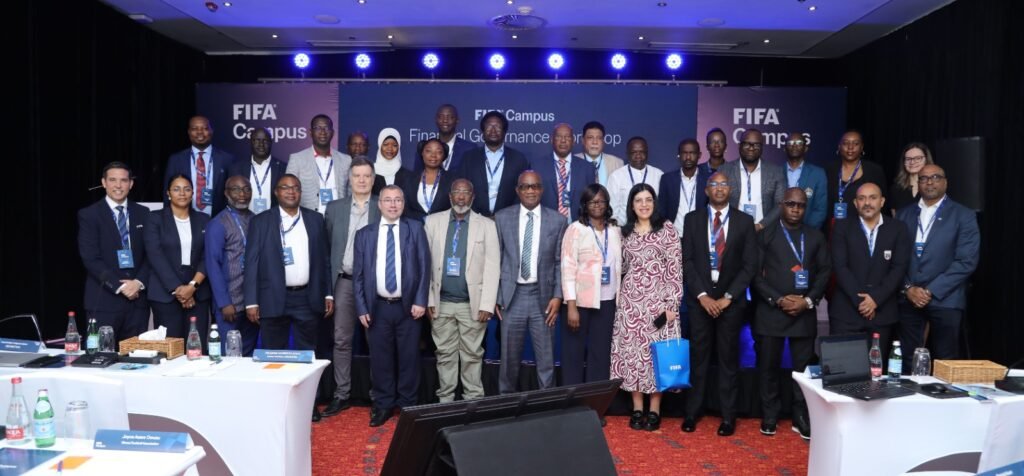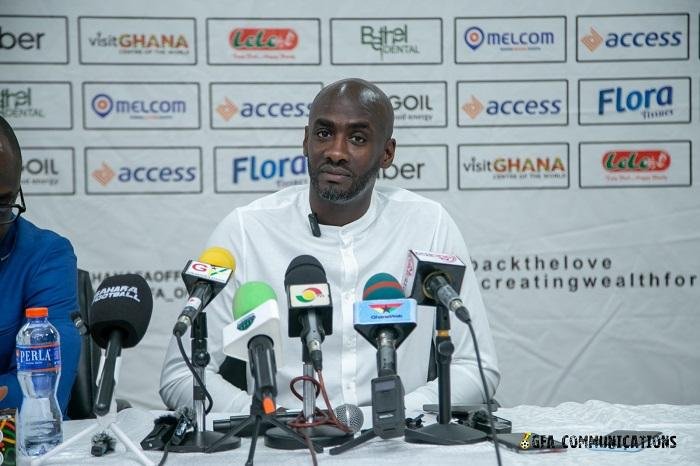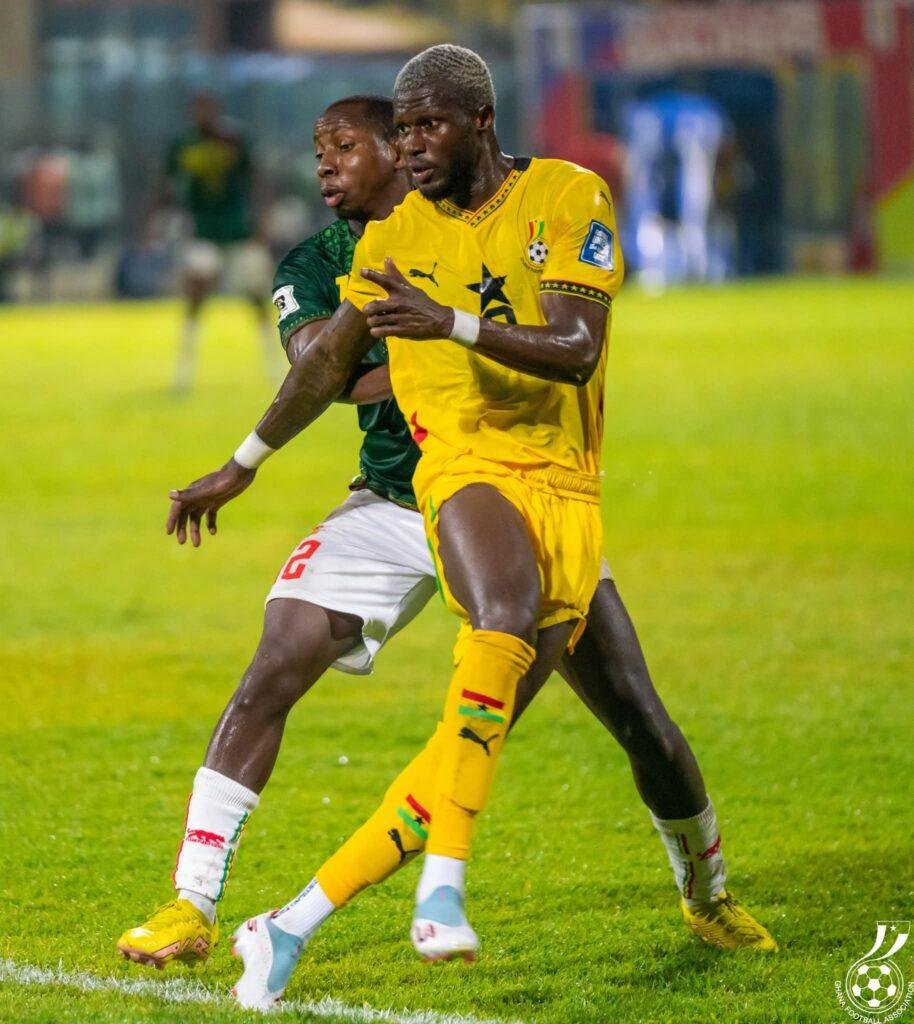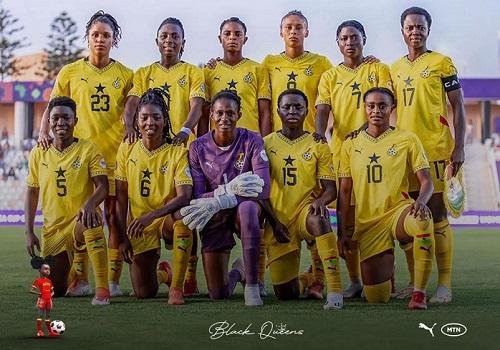Sports
FIFA Financial Governance Workshop launches in Accra

A three-day high-level workshop on FIFA financial governance has commenced at the Marriott Hotel in Accra.
This initiative aims to equip participants with the latest knowledge and tools to enhance financial governance and accountability within football administration.
Organised by FIFA, the workshop is part of the newly established FIFA Campus, which serves as a central hub for football education and capacity development for ten member associations, including Cape Verde, Gambia, Kenya, Liberia, Nigeria, Sierra Leone, Sudan, Zambia, Zimbabwe, and the host Ghana.
The workshop will focus on strategies to improve financial transparency, effective resource allocation, and best practices that align with FIFA’s financial management standards.
It has brought together general secretaries and chief finance directors from mostly Anglophone African member associations.
Performing the opening ceremony, Mark Addo, Vice President of the Ghana Football Association (GFA), praised FIFA for selecting Ghana as the venue for this important workshop. He emphasised that it would enhance understanding of financial governance, which is essential for integrity, accountability, and transparency in football.
Addo highlighted that transparency, accountability, and ethical governance are fundamental principles for FIFA, which requires all member associations to adhere to strict financial standards to maintain trust and integrity within the sport.
“Implementing transparent, accountable, and ethical financial practices fosters trust and supports our global football communities. It also aids in expanding our products and collaborations.
Workshops like this provide a valuable opportunity for us to learn from each other and share ideas that will strengthen our collective efforts,” he stated.
He urged participants to recognise that financial governance is not merely a technical obligation but a moral and ethical responsibility to the millions who view association officials as custodians of the game. He encouraged open dialogue and the courage to embrace new ideas.
Christoph Suppiger, FIFA’s head of financial governance programs, reiterated that the organization’s commitment to developing football globally relies on sound financial management. This ensures that member associations receive optimal value from funding distributed through the FIFA Forward program. Regular workshops like this one are essential for enhancing financial governance and capacity development among member associations.
The workshop began with a presentation of the Financial Governance Guide, followed by discussions, group work, and case studies covering topics such as conflict of interest, planning and budgeting, procurement processes, and the significance of maintaining adequate supporting documentation.
By Raymond Ackumey
Sports
‘Black Stars not there yet’

After seeing Mali undone by Alexander Djiku’s second half strike to give Ghana a 1-0 victory over Mali on Monday in a 2026 FIFA World Cup qualifier in Accra, Otto Addo gave his thoughts in the post-match press conference.
Below are excerpts.
On the game against Mali
You could see that we have a young squad and players who haven’t been playing often for the national team so far; that made them nervous. I think we got a good game.
We increased the pressure early in the second half, and managed to score out of a set piece. And then it was pure fight afterwards, especially the period after the goal.

On decision-making in the final third
I think if you have played before, you know that sometimes there’s a little bounce from the ball or the position is close and you think too much, I told them actually, but as a footballer, it’s normal that you try to look for a perfect solution.
Semenyo’s performance
He did really well, you know, it’s difficult to compare games from the Premier League with games in Africa and Ghana. It’s very, very difficult and then all games have their own nature and surely you can say that he stands more out in the Premier League, but for me today he was excellent, he fought until he couldn’t run anymore.
On Gideon Mensah
Well, I think sometimes he’s a little bit too confident and we had, especially after the Chad game, had some talks and for everyone who has played football on a higher level.
If he does it in La Liga, it’s fine because in La Liga, if you lose the ball to your opponent, he will counter-press you. He needs to simplify his game sometimes. Didn’t look too complicated, but it’s difficult sometimes if you’re coming from a different environment to switch your thinking.
On Kwasi Sibo’s performance
First of all, big congrats for him. I think he really did well. It’s not easy to come from a different environment to fit into the squad, but yeah, he knows a lot of players already in the team and he connected well. He’s very, very confident and I think he did extremely well, especially when you see that this was his first match. .
On Ghanaians being overly expectant
No, I think the expectations are normal. We are Ghana. For me, if everybody is talking before the Chad game that we already won and we are already taking the three points, it’s dangerous because if this gets to the heads of the fans, it’s a problem for me.
I’m warning everybody who think we have already gone to the World Cup to take things easy. It’s not like that. We have to give the same effort as today to beat Central African Republic. If we don’t do this, it’s a big problem. We have a lot of work to do. A lot of work. It’s going to be very, very difficult.
On goal scoring
You know, the last window, we scored eight goals. I think it was ok, but we can’t expect it all the time. So I hope that the players who missed the chances would score the next time. But it’s all about learning, improving and adapting always to the circumstances.
And I think in each situation, they could have taken one, two, three steps more or more time to look for the partner to have a better overview to give the right pass.
Sports
Black Queens Set to Face England Lionesses in International Friendly

The Black Queens will face the Lionesses of England in a high-profile international friendly on December 2,2025 per agreement between the Ghana Football Association (GFA) and the England Football Association.
After reaching the semi-finals at the 2024 WAFCON, the Black Queens are determined to build on that performance and establish themselves among the elite teams on the continent.
This match comes off as part of Ghana’s preparations for all international assignments, including the 2026 Africa Women’s Cup of Nations (WAFCON).
The fixture against England, one of the world’s top-ranked sides and reigning European champions, is expected to provide the Queens with a tough test that will sharpen the squad.
Head coach Kim Lars Björkegren will also seize the golden opportunity to measure the team’s progress, expose the players to world-class opposition, and correct areas that need improvement.
The Black Queens will head into the encounter motivated to put up a strong performance, not only to test their readiness but also to showcase the strides Ghana continues to make in women’s football on the international stage.














